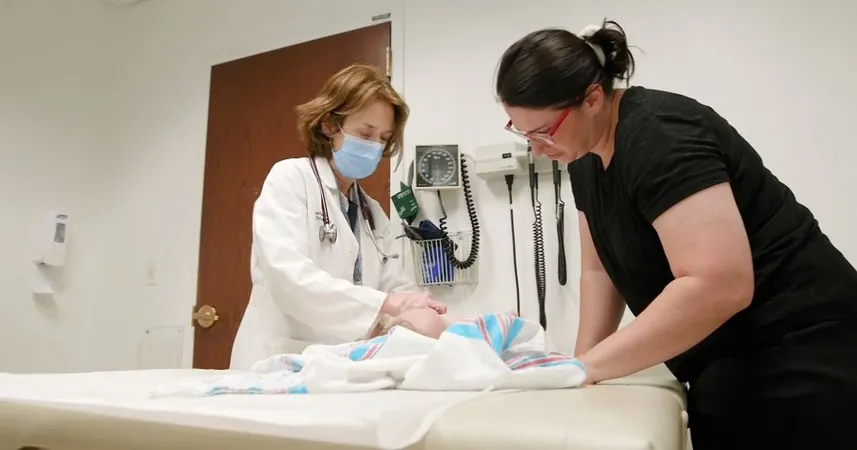
Alarming Rise in Pediatric Pneumonia Cases in North Carolina: What Parents Need to Know!
2024-11-12
Author: Wei
North Carolina is witnessing an alarming surge in pediatric pneumonia cases, particularly attributed to Mycoplasma pneumonia, commonly known as ‘atypical pneumonia.’ Recent reports illustrate that this bacterial infection is leading to increased hospitalizations among young children in the Triangle area, raising concerns among healthcare professionals.
Dr. Zachary Willis, a pediatric infectious disease specialist at UNC Children’s Hospital, noted that the current case volume is “a bit unusual.” Traditionally, cases of Mycoplasma pneumonia are more frequently observed in older children and teenagers. However, health officials are now seeing children as young as two years old being treated in hospitals, which has taken many by surprise.
“The rise of cases in younger children is unexpected,” Dr. Willis commented. “While many affected individuals can recover independently, we are advising parents to be vigilant.” He emphasized that while there is currently no vaccine available for this specific infection, effective antibiotics can aid in treatment.
Recent data from UNC Hospitals revealed a staggering increase: 40 positive cases were reported in the last week of October 2024, compared to zero cases detected during the same period the previous year. Dr. Willis pointed out that fall usually sees a rise in these types of infections, but this year’s spike is particularly concerning, marking the highest incidence of Mycoplasma pneumonia since before the COVID-19 pandemic.
In light of these developments, the Centers for Disease Control and Prevention (CDC) issued an alert regarding the growing trend of infections among children. The North Carolina Department of Health and Human Services (DHHS) has also reported significant increases in pediatric pneumonia cases across emergency departments statewide, particularly in the Triangle, Charlotte, and Triad areas.
Dr. Willis warned that while any child might contract this infection, those with underlying health conditions like asthma face greater risks. Symptoms of Mycoplasma pneumonia can mimic those of other respiratory illnesses, often leading parents to believe their children have a viral infection or bronchitis. Common symptoms include fever, cough, sore throat, rapid breathing, and wheezing.
Parents should be particularly watchful for persistent fever or cough, as these can indicate pneumonia. Other warning signs in children include chest or belly pain, nausea, chills, and overall unusual behavior indicating sickness.
To mitigate the spread of infections, Dr. Willis advised parents to keep sick children at home and avoid sending them to school during illness. He further recommended making appointments for COVID-19, flu, and RSV vaccinations as temperatures drop and the risk of respiratory infections rises.
“Preventing illnesses through vaccinations can significantly reduce emergency room visits and hospitalizations, allowing families to avoid missed work and school,” Dr. Willis concluded.
As pediatric pneumonia cases continue to surge, it is crucial for parents to stay informed, recognize the signs, and take appropriate preventative measures to safeguard their children's health this fall.




 Brasil (PT)
Brasil (PT)
 Canada (EN)
Canada (EN)
 Chile (ES)
Chile (ES)
 España (ES)
España (ES)
 France (FR)
France (FR)
 Hong Kong (EN)
Hong Kong (EN)
 Italia (IT)
Italia (IT)
 日本 (JA)
日本 (JA)
 Magyarország (HU)
Magyarország (HU)
 Norge (NO)
Norge (NO)
 Polska (PL)
Polska (PL)
 Schweiz (DE)
Schweiz (DE)
 Singapore (EN)
Singapore (EN)
 Sverige (SV)
Sverige (SV)
 Suomi (FI)
Suomi (FI)
 Türkiye (TR)
Türkiye (TR)